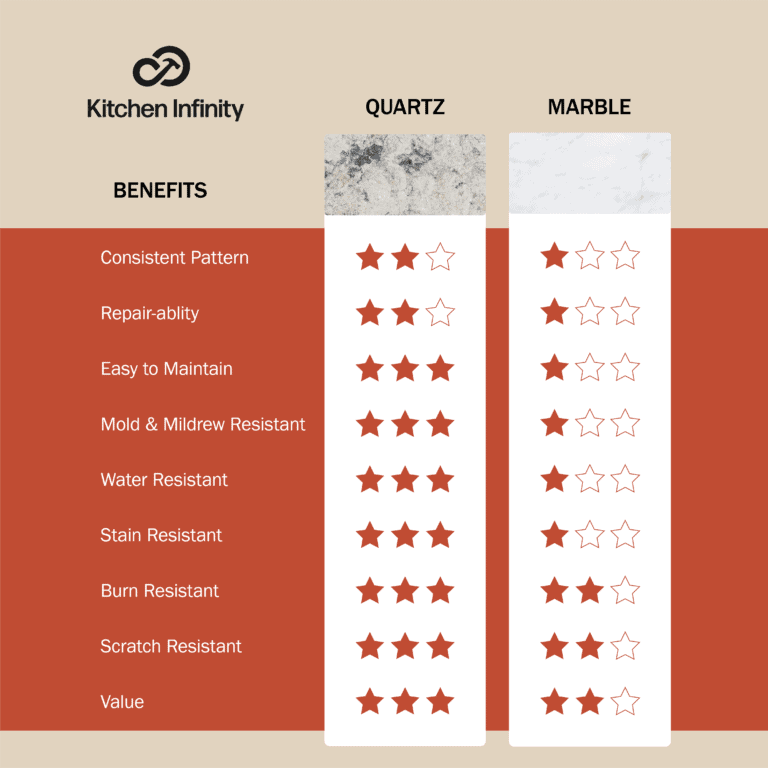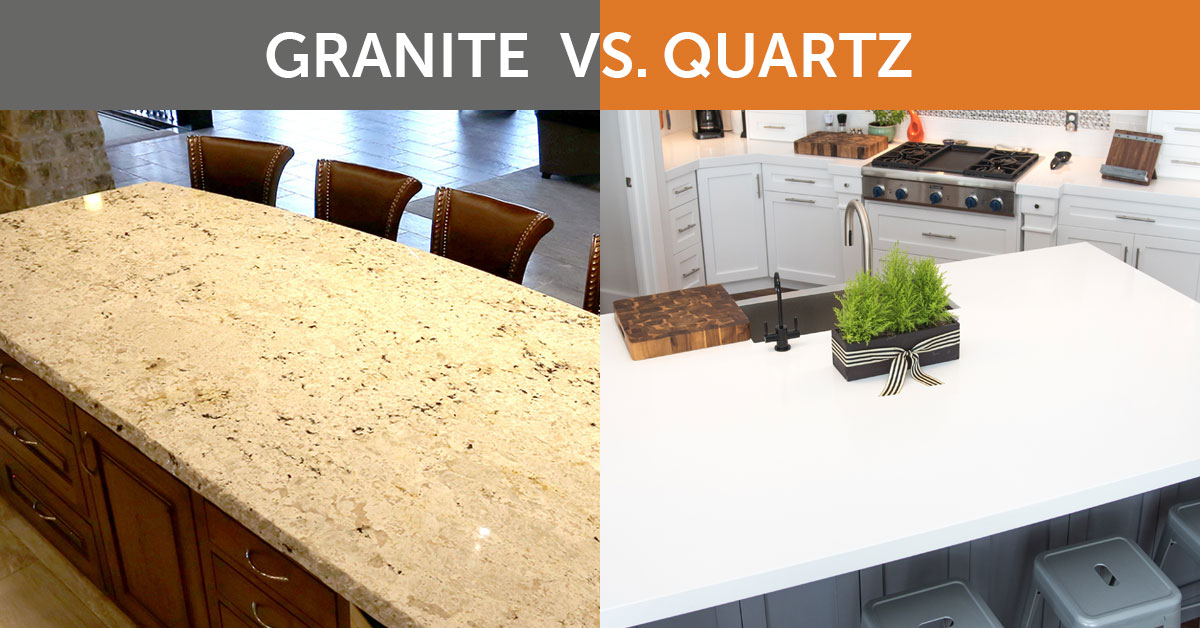When it comes to choosing the perfect material for your kitchen or bathroom countertops, the debate often centers around granite, marble, and quartz. Each of these materials has its unique characteristics, and understanding the differences can help you make an informed decision for your home.
Granite, a natural stone formed from volcanic activity, is known for its durability and resistance to heat and scratches. It comes in a wide range of colors and patterns, making it a versatile choice for various design aesthetics. The natural beauty of granite lies in its unique veining and speckling, ensuring that each countertop is one of a kind.
Marble, another natural stone, offers a timeless and elegant appearance. Its distinctive veining and smooth surface create a luxurious feel, making it a popular choice for high-end kitchens and bathrooms. While marble is less resistant to scratches than granite, proper maintenance can help preserve its beauty for years to come.
Quartz, on the other hand, is an engineered stone made from a combination of natural quartz crystals and resins. This results in a non-porous surface that is highly resistant to staining and bacterial growth. Quartz countertops come in a vast array of colors and patterns, often mimicking the look of natural stone. Unlike granite and marble, quartz requires minimal maintenance and does not need to be sealed.
When considering durability, granite takes the lead. Its hard surface makes it less susceptible to scratches and damage from heat. Marble, while offering unmatched elegance, requires more careful handling to avoid scratches and stains. Quartz, with its engineered durability, falls between granite and marble in terms of toughness.
In terms of maintenance, quartz emerges as the easiest to care for. Its non-porous surface resists stains and bacterial growth, and it does not require sealing. Granite requires periodic sealing to maintain its resistance to stains, while marble is more prone to staining and requires regular sealing to protect its porous surface.
Aesthetically, the choice between granite, marble, and quartz ultimately depends on personal preferences. Granite’s natural beauty and unique patterns appeal to those who appreciate the charm of natural stone. Marble, with its classic and luxurious appearance, is favored by those seeking a sophisticated ambiance. Quartz, with its versatility in mimicking various stone looks, appeals to those who desire a more uniform and contemporary aesthetic.
Cost considerations play a crucial role in decision-making. Granite is generally more affordable than marble and quartz. Marble tends to be the most expensive due to its luxurious reputation and the labor-intensive process of quarrying and refining. Quartz falls in the middle range, offering durability and aesthetics at a relatively moderate cost.

Environmental impact is an aspect that conscientious homeowners may consider. Granite and marble are natural stones, but the extraction and processing of these materials can have environmental consequences. Quartz, being an engineered stone, may have a lower environmental impact, especially if it incorporates recycled materials.
Installation is a factor that can affect the overall cost and timeline of your countertop project. Granite and marble are heavy natural stones, requiring professional installation. Quartz, being lighter, maybe more manageable and could potentially be installed by experienced DIYers. However, professional installation is still recommended for optimal results.
Resale value is another consideration, especially for homeowners looking to invest in their property. Granite and marble are often associated with high-end homes and can contribute to increased resale value. Quartz, while offering durability and aesthetics, may not have the same perceived value in the real estate market.
In terms of trendiness, quartz has gained popularity in recent years for its modern and versatile designs. Granite remains a classic choice, and marble continues to be associated with timeless elegance. Consider your personal style preferences and how well the chosen material aligns with the overall design of your home.
Local availability can impact the options you have for your countertop material. Granite and marble are natural stones that may vary in availability depending on your location. Quartz, being an engineered product, is generally more consistently available across different regions.

The decision between granite, marble, and quartz ultimately boils down to your lifestyle, preferences, and budget. If you value the natural beauty and uniqueness of stone, granite or marble might be the right choice. For those prioritizing durability, easy maintenance, and a wide range of design options, quartz could be the ideal solution. Consider visiting showrooms, consulting with professionals, and exploring various samples to make an informed decision that aligns with your vision for your home.
Quartz vs Granite vs Marble Counter Tops: Which Surface is Best?

Granite vs Quartz countertops. Who is the winner?

Quartz vs Marble Countertop Comparison Kitchen Infinity

Quartz vs Marble Countertops u2013 Mega Stone

premium granite marble quartz premium granite marble quartz

Quartz Vs. Granite Countertops: Which One Is Best for Your Home

Related articles:
- Beveled Edge Quartz Countertop
- Quartz Countertop Choices
- Quartz Countertop Types
- Grey Brown Quartz Countertops
- Quartz Countertops Pattern
- Quartz Countertops DIY
- Kitchen Island Quartz Countertop
- Quartz Countertops In Bathroom
- White Engineered Quartz Countertops
- Artificial Quartz Countertops
